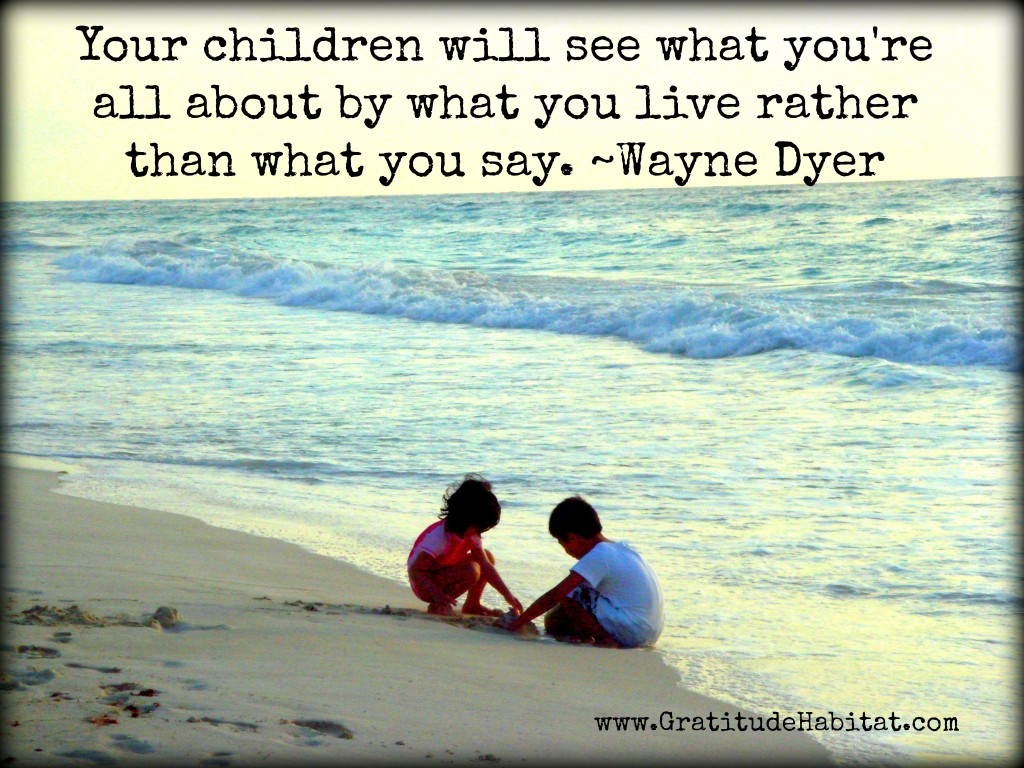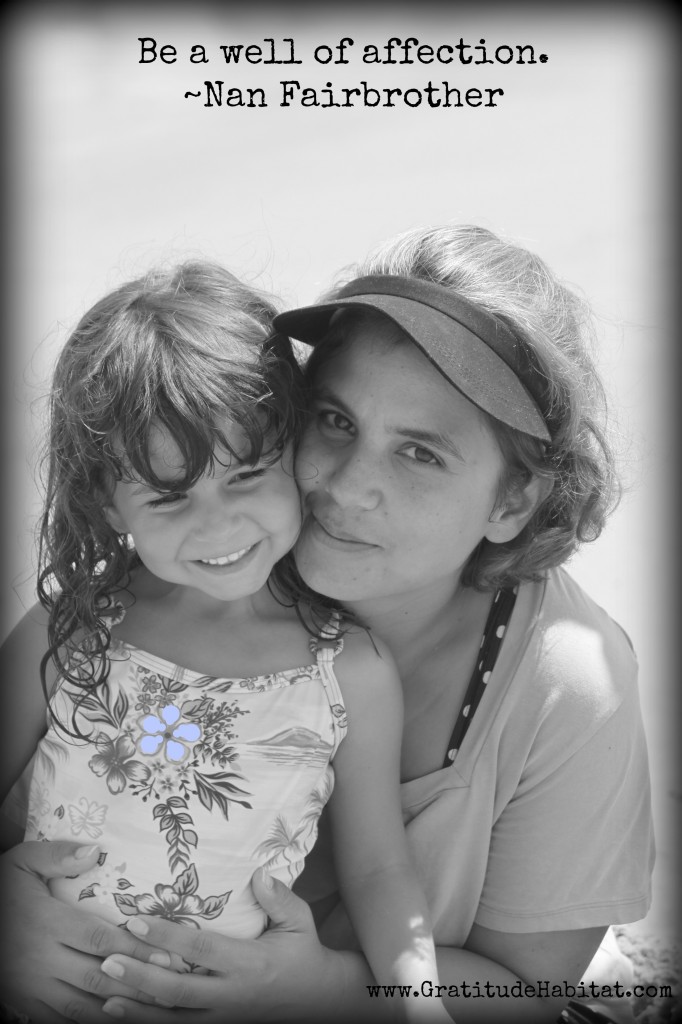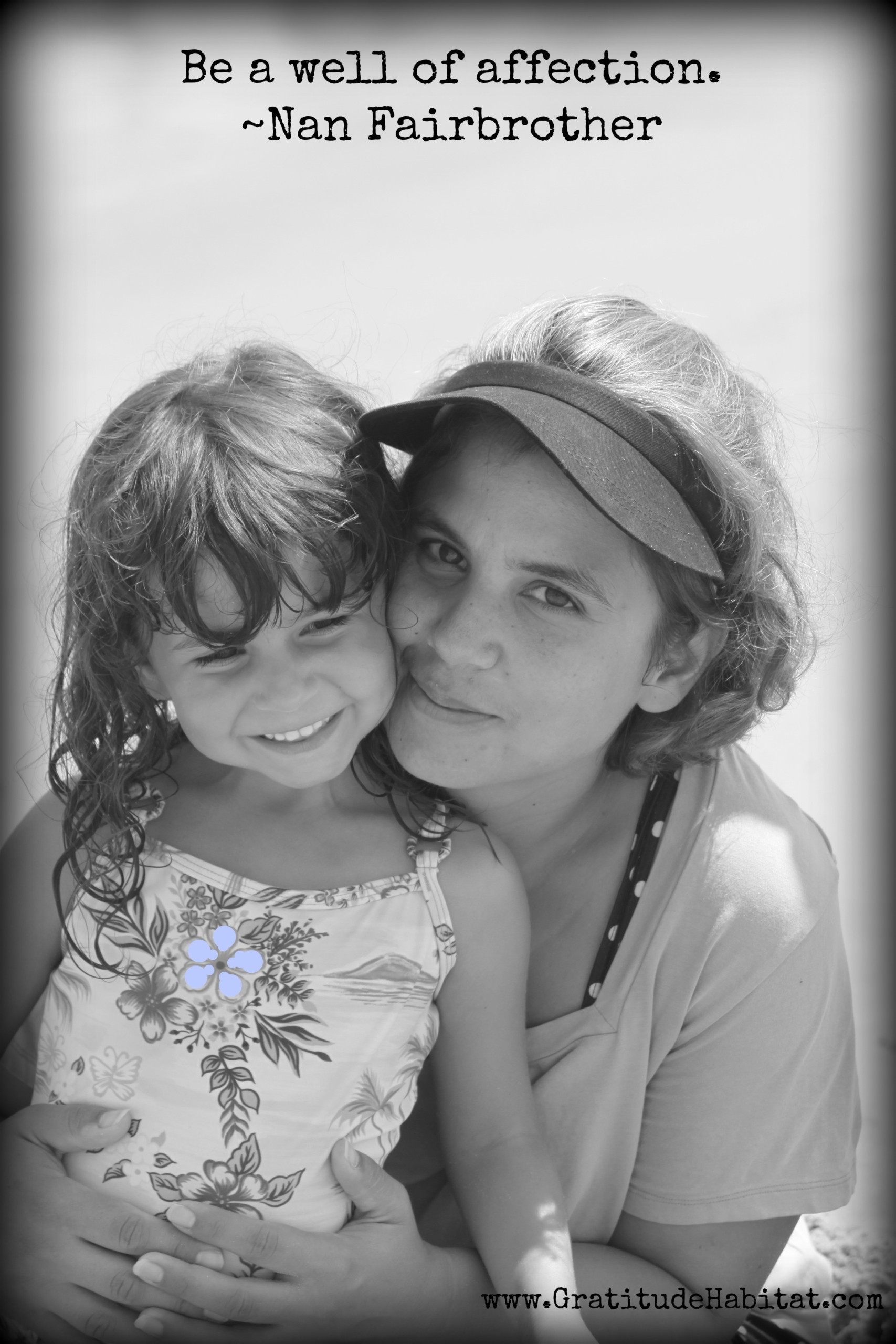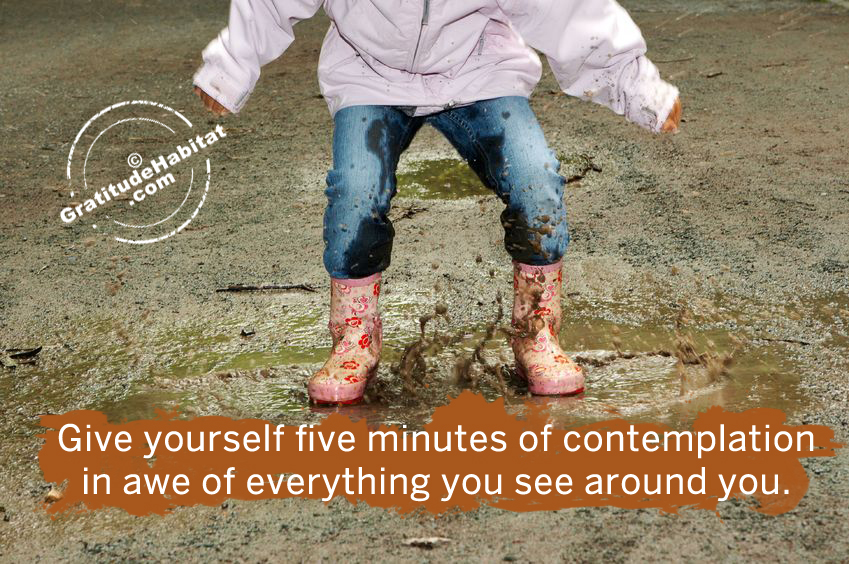Gratitude Helps Children Grow
…if you live feeling like
Your glass is half empty, well,
It may as well be empty all the way.
~Mattie J.T. Stepanek, Journey Through Heartsongs
The word “appreciation” means really seeing something for what it is – having an awareness of how special, how lucky, how unique, how blessed, how big, wonderful or awesome something is. Appreciation is a recognition not based on comparison, but based on the intrinsic value, character or immensity of a thing, action or person.
Some people are born “appreciators”. They value the essence of everything – the beauty of a sunset, the fragile green of a leaf, the boundless energy of a small child. Others must learn to see the beauty and wonder in the world.
Teaching children the value of appreciation is so important. It opens the heart, giving them a sense of belonging, a sense of community. Gratitude opens children up to the awareness of what others provide. Helping children grow an ‘attitude of gratitude’ can begin at a very early age. Below are tips and suggestions for creating a deep sense of gratitude in the children in your life – your own children, grandchildren, nieces/nephews, friends, students, etc.
1. Show Gratitude
Be an example. One of the most valuable ways to instill gratitude in children is through our own behaviors. Kids watch the adults in their lives and are actually listening even when we think they aren’t. Let your kids catch you being grateful, saying ‘thank you’ to store clerks and teachers, waving a ‘thank you’ to someone who lets you merge in traffic. Tell your children how much you appreciate the people in your life, including them!
When we live our lives appreciating and expressing our gratitude in words and actions, children absorb that outlook and the gratitude habit. With adults as their guides, they hear the ‘thank you’s’ and they begin to notice the blessings and abundance in all situations.

2. Gratitude In Nature
Nature is a major doorway to appreciation. The unarguable beauty and power encountered in natural places inspires a young child’s appreciation. The song of a bird, wind rustling the grass, a butterfly, all are beautiful & awe-inspiring… Let your child experience the wonders of nature through their senses. They will see your obvious pleasure and join you in your appreciation. Share what you’ve experienced later by talking about it with them. Let your child experience the wonders of nature through their senses then discuss what they appreciated. Kids tend to see the most amazing things and allowing them to share their appreciation can open our adult eyes to some amazing things!
3. Care & Respect
Care and respect of people and our possessions are important aspects of appreciation.
beginning at a young age, help your child learn to take care of their things. Teach them to respect their belongings and the property of others by caring for and respecting your own things as well as theirs. Demonstrate an attitude of thankfulness for what you have and for your life together.
Acknowledgements, celebrations and shared reflection are simple ways to express your gratitude to the people you care about. Be respectful to people of all ages, including your children. Again, let your kids ‘catch you’ in the act of caring and showing respect.
4. Affection
Affection is a powerful way to express appreciation. Humans by nature need affection to flourish. Hugs, kisses and loving words show your child how much you value him and others. So, be affectionate! Hug your friends, kiss your spouse or significant other, love-up your kids. You will all be the better for it.
Simple thank-yous given often and sincerely introduce your child to the graciousness of appreciation. These ‘thank yous’ can be spoken or written. Both expressions of thanks are powerful ways to show affection and gratitude. The art of writing a thank you card is one your children will benefit from their entire lives. In fact, studies show that teachers would much prefer a heartfelt thank you card from a student than a gift.

5. Tangible Appreciation
Older school age children can begin to show appreciation in more tangible ways. It is important to foster the development of gratitude in order to keep your youngster’s heart open at a time when many around them are “shutting down” in this way.
Provide your child with a gratitude journal of their own, prompt them to write meaningful thank you’s and encourage them to get involved in volunteering. Again, your own appreciation and how you show it will be the best teacher for your child. How you view and respond to the world around you and the life you live will be an influential factor in opening your child’s heart to appreciation.
Above all else, let your children know you appreciate them for who they are and what they bring to your life.
In teaching children the attitude of gratitude, there is no more powerful teacher than your own example.
While we are living in the present, we must celebrate life every day, knowing that we are becoming history with every work, every action, every deed. ~Mattie J.T. Stepanek
Comment & Share:
How do you teach gratitude to the children in your life?
How do you see your children expressing their appreciation?







